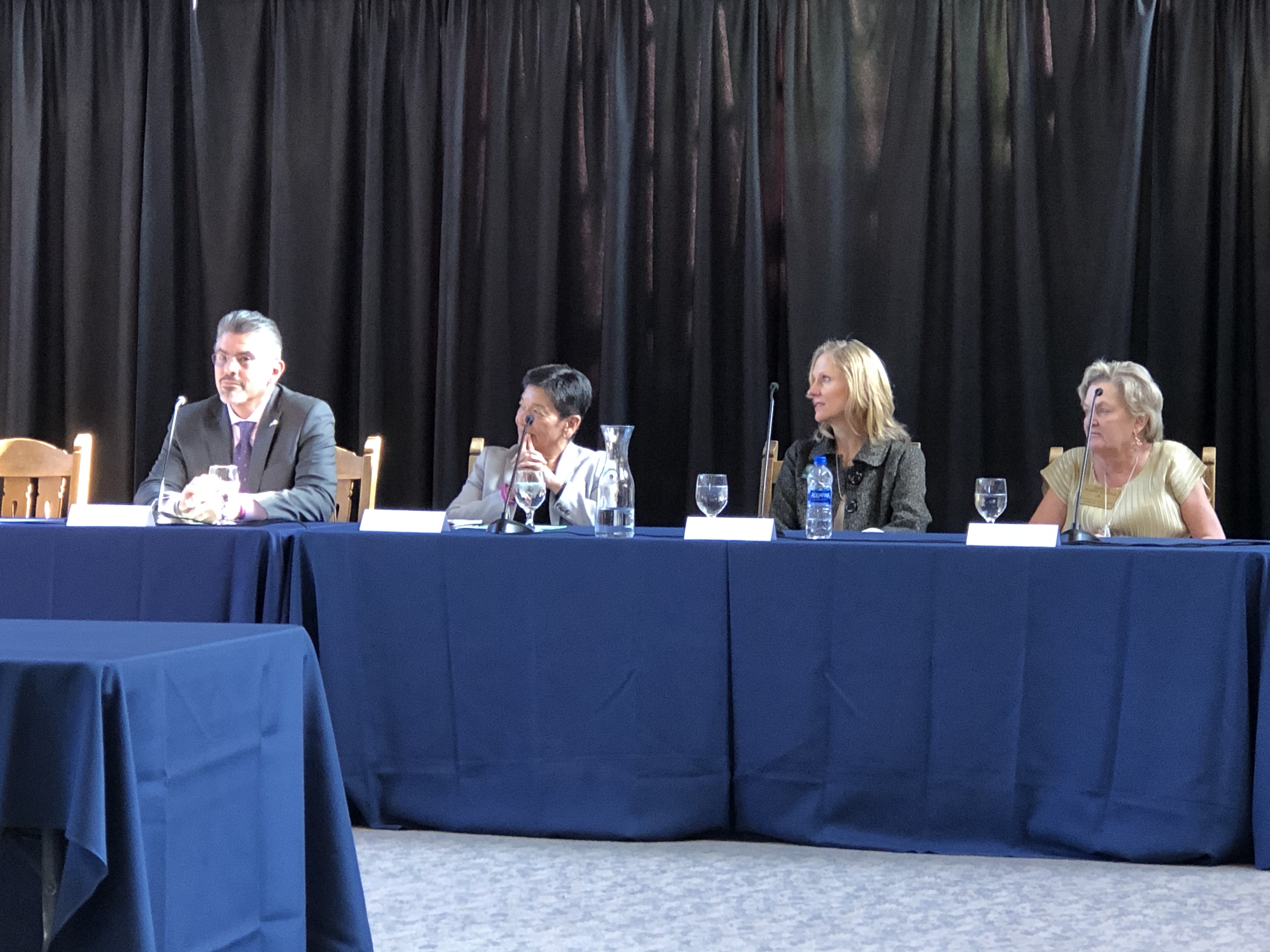On Oct. 9 Justices Steven C. González, Mary I. Yu, Debra L. Stephens and Susan Owens discussed the role of the judiciary system. The session took place in the Wilson Library Reading Room. Jack Taylor // AS Review
By Jack Taylor
On Wednesday Oct. 9, students at Western were able to hear from Washington Supreme Court Judges about what drove them to aim for the esteemed role of justice as well as the pressures of being a judge. Focusing on the judicial role in democracy, most of the questions from Professor Paul Chen who moderated the event, centered around how the justices remain neutral while still delivering justice. The first session focused on the role of the judiciary court while the second session centered on free speech.
Meeting in the Wilson Library Reading Room, the first panel of judges consisted of Justices Steven C. González, Susan Owens, Debra L. Stephen and Mary I. Yu while Political Science Professor Paul Chen moderated the first session.

“I would imagine, I happen to teach in the political science department and I teach American politics, that all of government the role is to deliver justice, so is there something distinctive or different about how the court as a judicial institution delivers justice,” Chen said.
Justice Susan Owens, the seventh women elected into the state Supreme Court, responded to the question on what makes the judicial branch different from other branches of government.
“We are very different because we are different branches of government, and we often are defining the word on policy, actions and legislation, and that’s not necessarily true in every case but it’s often true, particularly in matters with the Constitution,” Justice Owens said.
Justice Debra L. Stephens also spoke on what she believes makes the justices different from the other branches of government.
“It really is part of the job in the judiciary to be the safety valve for the losers in the political level who can come if they believe the rule of law is not being followed, or if the Constitution has been violated or if their rights are being threatened,” Justice Stephens said. “So it’s essential that we have a judiciary that is non-subject to political pressures so that people can come in and seek redress.”
Taking questions from the audience as well, Rukhsar Sadat, a third-year student, asked the panel a question regarding equality for all.
“The United States Constitution states that all men are made equal, I wanna know how long it will take for us to reach that equality,” Sadat said.
Justice Steven C. González tackled this question by analyzing the Constitution.
“The phrase ‘more perfect’ is like ‘more unique,’ it’s not proper language. Perfect is already done, I don’t think we are ever gonna be done and even if we get to the point where we think we are there, things will change, we need to keep vigilant to maintain that equity,” Justice González said.

During the second session which included four different Justices, the topic of free speech was the focal point and the justices discussed if there should be any limits on free speech. Justice Sheryl Gordon McCleod shared her belief that no one should put a limit on free speech.
“On the side of freedom of speech, let me say that freedom of speech contributes to freedom of thought,” Justice McCleod said. “Freedom of thought is basic to democracy and limiting free speech by the government to produce some other supposed good has always been a complete and total disaster, from Nazi Germany to Stalinist Russia.”
While free speech may be protected in the U.S., Justice Barbara A. Madson who become a justice in 1992, commented that not all speech is valued equally.
“It might be interesting to the students to know that not all speech is of equal value under the analysis of the U.S. Supreme Court,” Justice Madson said. “So there is certain speech which is not necessarily protected at all, and then there is other speech that is less protected.”
Justice Madson explained how commercial speech is not always protected due to commercial regulations. Additionally speech such as true threats, fighting words and defamation are not protected.
Outside of talking about free speech, the panel also discussed how disagreeing with one another is what makes them stronger as a team, rather than weakening them. Associate Chief Justice Charles W. Johnson spoke on the matter.
“We are a panel of nine, and I think we are operating at our strongest when we are in the deepest of disagreements of over how to resolve cases because we got to find the answer, but we have to listen to one another and we have to adjust and adapt and incorporate and understand the viewpoints of others,” Justice Johnson said.
More information on the Washington State Supreme Court can be found on their website.

